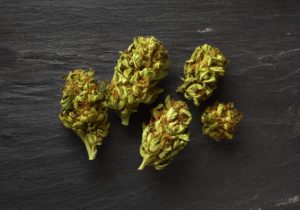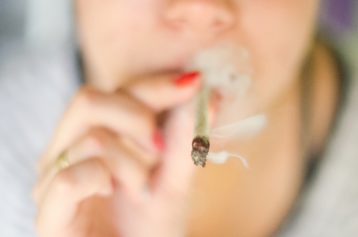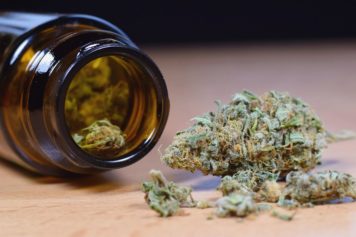
D.C.’s emergency law mandating that medical marijuana dispensary permits be given preferentially to minority-owned businesses took effect last month. (Photo by Brad Wenner/Getty Images).
Members of the D.C. Council have approved emergency legislation that would give local nonwhite businesses a leg up when applying for permits to operate medicinal marijuana dispensaries.
The new law, passed on June 30, requires that medical marijuana dispensary licenses be given preferentially to minority-owned companies and small businesses, The Washington Times reported. The legislation’s key sponsor, Council member Robert C. White Jr. (D-At Large), said the law is needed to help nonwhite and small business entrepreneurs rise above economic disadvantages.
“I knew that this would be a high-growth industry in the District, and I’ve had concerns from the beginning that there would not be enough opportunities for African-Americans and local businesses,” White told The Washington Times. “I wanted to be sure that we carved out space as we pursue this new industry.”
White also cited the disproportionate number of African-Americans thrown in jail over pot-related charges. Recent studies have shown that while Blacks and whites use the drug at similar rates, African-Americans, particularly African-American males, are nearly four times more likely to be arrested for marijuana possession.
“We have locked up so many Black people for marijuana, and I see it as incredibly hypocritical for those folks to return from prison on marijuana charges just to come back to a place that has now legalized and industrialized it, and they can’t play any role,” White told The Washington Post.
D.C. is the latest district to join a nationwide effort to entice nonwhite businesses to join the cannabis industry by offering special incentives. For instance, a Boston, Mass., council member recently proposed a bill that would funnel 20 percent of unspent revenue from state and local marijuana taxes toward programs to ensure racial equity within the industry, the Associated Press reported. Meanwhile, state regulators in West Virginia are now required to seek ways to encourage nonwhite business owners to apply for marijuana growing licenses.
The Washington Times reported that D.C. residents voted to legalize medical marijuana in 1998, then went on to legalize recreational pot in 2014. Under state law, residents 21 and older are allowed possess less than two ounces of the drug and grow as many as six pot plants at a time. Efforts by the D.C. government to regulate and tax recreational pot have been hindered by the Republican-led Congress, however, according to the newspaper.
The new emergency legislation will remain in effect for only 90 days, meaning efforts to give pot-selling preference to nonwhite and small business owners will end around the start of September.
D.C. Mayor Muriel Bowser’s office said it has already begun implementing the new law.
“I think that what we’ll see from this legislation are real opportunities for local and minority-owned businesses to play a foundational role in this emerging economy,” White said.


